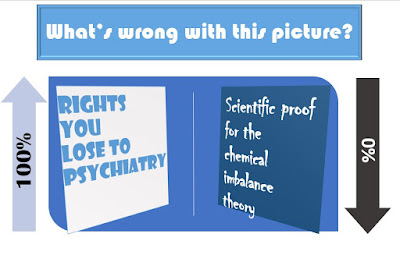 |
explanation. Theories have included things like: possession by demons, divine displeasure, the imbalance of the bodily ‘humours’ (blood, yellow bile, black bile, phlegm), bad genes, dysfunctional families, repressed sexuality, bad teeth, misshapen skulls, being too smart, being to dumb... The list goes on.
In Western medicine, it was Hippocrates who won out. He piloted the brain theory and the disease approach that, in modified form, still holds pre-eminence today.
Modern Adaptations
In modern times, there are two separate, but overlapping models. These include (1) the mental disorders described by the ‘DSM’ and (2) the medical model of ‘mental illness’. Both models have significant practical, theoretic and empirical limitations, as we point out below.
1. The DSM Model of ‘mental disorders’
The DSM Model is based on the Diagnostic and Statistical Manual of Mental Disorders published by American Psychiatric Association. The DSM - and its European counterpart the ICD - are used by mental health professionals to diagnose mental disorders like depression, ADHD, bipolar, borderline personality and schizophrenia.While often thought to be ‘scientific’, the DSM is largely the product of insider turf wars, political compromise, industry needs and billing concerns. It is said to be atheoretical, but unquestionably the DSM views certain aspects of human experience as abnormal/ disorders. Possibly, this is just a nod to the practicalities of healthcare reimbursement. However, the process of distinguishing the truly abnormal (insurance pays) from the common effects of a stressful life (you pay) has left something to be desired.
Rote symptom checklists determine whether your anxiety, mood, grief, trauma, substance use, sexuality is ‘normal’ or ‘disordered.’ At a minimum, this is a lousy way to get to know another human being on the worst day of their life. Painful experiences, like getting fired, ending up homeless or being raped in shelter housing are routinely ignored or overlooked. It’s like the teacher pronouncing you ‘learning disordered’ without asking if you studied.
Reliability and validity have proved problematic as well. Individual diagnoses tend to vary, as do predictions of violence and suicide. Given that single bad call can change the course of a lifetime, concerns like these led whistleblower Paula Caplan, Ph.D., to report to the Washington Post in 2012: “Psychiatry’s bible, the DSM, is doing more harm than good.”
Since that time, things have gotten worse for the DSM, not better. In a stunning reversal, world-renowned psychiatrist, Allen Frances, MD – the man who spear-headed the modern DSM classification system - described DSM-5 as ‘deeply flawed and scientifically unsound.’ A former Director of the National Institute of Mental Health (think science, research, evidence-based), Dr Steven Hyman, called DSM-5 ‘totally wrong, an absolute scientific nightmare.’ In April 2013, the NIMH formally went on record as looking for a more valid approach. According to then-director Thomas Insel, MD, ‘Patients…deserve better.’
2. The Medical Model of ‘mental illness’
In contrast to the DSM, the Medical Model has a crystal clear vision:
‘Mental illness’ is a real disease. It is caused by pre-existing genetic, biochemical or physiologic abnormalities. Those affected are susceptible to disregarding personal welfare or that of others. Aggressive treatment (drugs, shock, CBT) is required to correct or mitigate deficiencies.
For all its theoretical congruence, the medical model hasn’t fared much better than the DSM. Treating ‘mental illness’ takes a whopping 15-25 years (on average!) off of the average life span. The promised ‘chemical imbalances’ and bio-markers still haven’t materialized in the research. Disability rates have sky-rocketed. Long-term outcomes and relapse rates have worsened overall. Many suspect that prescribed drugs increase violence and suicide.
Accordingly, in May 2013, the UK Division of Clinical Psychology called for the end of biomedical disease model of ‘mental. In the professional opinion of these psychologists, both the SM and ICD classifications systems possess limited practical and research utility. The disease model on which they are based is significantly flawed and a paradigm shift is desperately needed to address the impact of psychosocial factors on mental distress and human behavior.
Resources:
Caplan, PJ (1995). They Say You’re Crazy: How The World’s Most Powerful Psychiatrists Decide Who’s Normal (Perseus Books: www.aw.com/gb).
Caplan, PJ (April 27, 2012). Psychiatry’s bible, the DSM, is doing more harm than good, https://www.washingtonpost.com/opinions/psychiatrys-bible-the-dsm-is-doing-more-harm-than-good/2012/04/27/gIQAqy0WlT_story.html?utm_term=.bf2d94b01bb8
Cassani, M (August 9, 2014) Treatment resistant mental illness? or Iatrogenic (drug-induced) illness?, https://beyondmeds.com/2014/08/09/treatment-resistant-mental-illness-or-iatrogenic-drug-induced-illness/ (resources cited therein)
Division of Clinical Psychology Position Statement on the Classification of Behaviour and Experience in Relation to Functional Psychiatric Diagnoses: Time for a Paradigm Shift, https://www.madinamerica.com/wp-content/uploads/2013/05/DCP-Position-Statement-on-Classification.pdf
Insel, T (April 29, 2013). Transforming Diagnosis, https://www.nimh.nih.gov/about/directors/thomas-insel/blog/2013/transforming-diagnosis.shtml
Johnstone, L (May 2013) UK Clinical Psychologists Call for the Abandonment of Psychiatric Diagnosis and the ‘Disease’ Model, https://www.madinamerica.com/2013/05/uk-clinical-psychologists-call-for-the-abandonment-of-psychiatric-diagnosis-and-the-disease-model/?platform=hootsuite.
Scull, A, Madness and Meaning (April 22, 2015), https://www.theparisreview.org/blog/2015/04/22/madness-and-meaning/
Whitaker, RH (2010). Anatomy of an Epidemic. New York: Random House.
Wikipedia, Humorism, https://en.wikipedia.org/wiki/Humorism
No comments:
Post a Comment
Please share your thoughts: